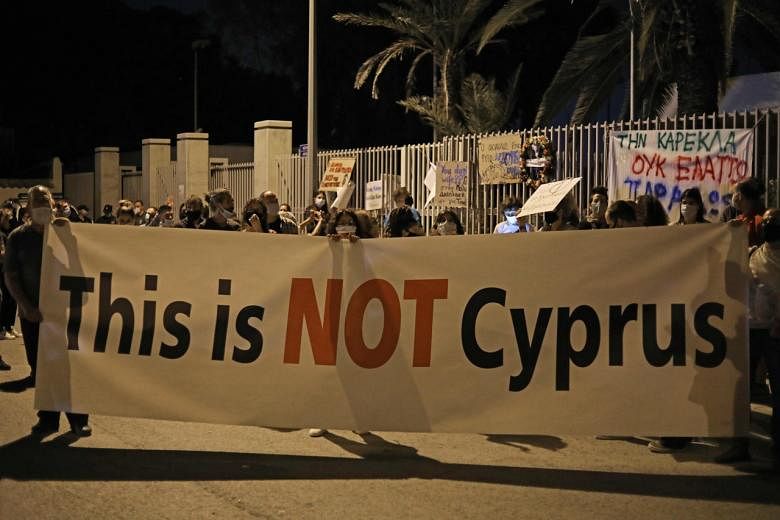BERLIN - For Malta, issuing passports has become a gold mine. The small island in the Mediterranean raked in between €1 billion (S$1.6 billion) and €1.5 billion over the past six years by selling Maltese citizenship to those who would have it.
While the 500,000-resident island may not be the most attractive place to spend the rest of your life, bearing a Maltese passport might be worth it. Maltese citizens enjoy the numerous advantages of belonging to the European Union like visa-free travel in the Schengen area, freedom of movement, and permission to work in any of the 27 member states of the EU.
However, this business model might come to an end sooner rather than later, as the European Court of Justice is on watch to file a lawsuit against countries that sell citizenship for cash.
EU Commissioner for Justice Didier Reynders recently stated that the so-called golden passport system "undermines the essence of EU citizenship. European values are not for sale".
Concerns have arisen that a golden passport opens the door to money laundering, tax evasion and corruption. In a plenary debate, delegates of the EU parliament insisted that Europe must not have "a fast-track entrance for criminals".
But it is not only Malta that angers the EU commissioner.
Cyprus, also located in the Mediterranean sea, has created a profitable business of selling its passports as well. Around a year ago, Cyprus made headlines when it became known that fugitive businessman Low Taek Jho had a Cypriot passport that allowed him to evade the Malaysian police.
Low is the key figure in the 1MDB scandal of 2015, in which he allegedly helped siphon billions of dollars from the state fund into private accounts.
In Malta, the preconditions for becoming a Maltese citizen are clearly set: The interested party has to acquire real estate worth between €600,000 and €750,00, make an additional donation of €10,000 to a registered non-governmental organisation, and take legal residence in Malta for at least 12 months. Once the requirements are met, an application for citizenship can be filed.
With a minimum investment of €2.5 million, becoming a Cypriot is somewhat more expensive than acquiring the Maltese citizenship.
However, Cyprus came into the crosshairs last autumn after reporters of the Arab news channel Al Jazeera found that even the highest echelons of politics, including the speaker of Parliament, had been involved in the scheme. In exchange for extra payments, passports were given to well-known criminals.
Although Cyprus announced after the revelations that it would discontinue its programme in its present form, it did not say whether the country will completely stop the sale of passports.
More recently, Brexit and Covid-19 have led to an increase in requests from foreign citizens. The pandemic in particular, and the prospect of having access to rather well functioning European health care systems, worked as a magnet.
Some European countries have started offering golden visas.
Portugal, Greece and Spain are putting up for sale permits of residence in exchange for investments. Spain launched its golden visa programme in 2013. By buying real estate worth €500,000, a family obtains the permission to stay temporarily in Spain. The visa can be renewed every two years. After five years, permanent residency is waiting and after 10 years, even citizenship.
Living in Spain is not required to retain and renew the residency visa permit.
Estimates for the proceedings from selling golden visas range from €5.5 billion since 2012 in the case of Portugal and €7 billion for Cyprus since 2013.
Mr Sven Giegold, a member of the European Parliament and the German Green Party, says: "EU passports and visas are not commodities. Money must not be the criterion for citizenship and residence rights in the EU."
For years, he has pressured the commission to crack down on the beneficiaries of the programmes.
Critics like Mr Giegold do not buy into the argument that selling its citizenship is a sovereign decision of a sovereign state. Since a passport of Cyprus or Malta also gives access to services and benefits in other EU countries, the matter is not purely a national one, they say.
Even more, as a EU citizen one is eligible to vote.
Participating countries "make profits from rights which are valid throughout Europe", Mr Giegold recently stated. Calling the EU Commission to action, he said on Oct 20 on his website: "It is now time to launch concrete countermeasures."


